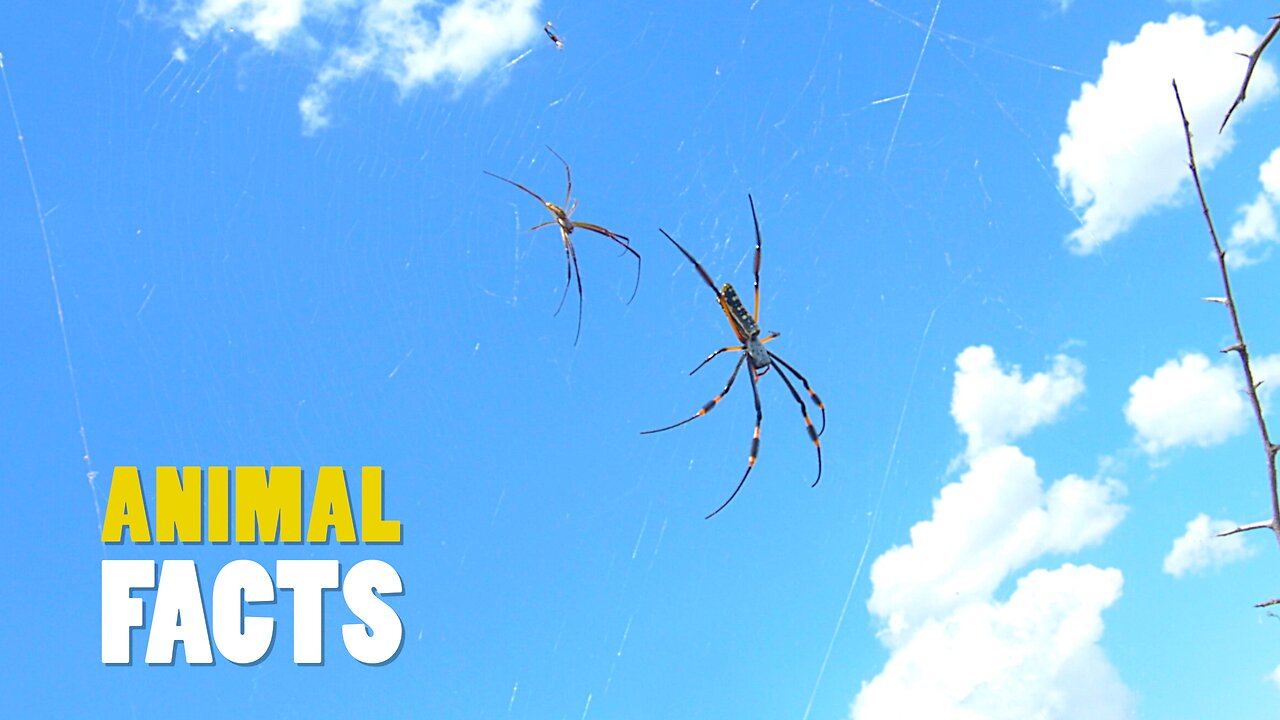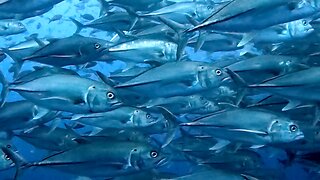Premium Only Content

The World’s Most Misunderstood Creature: The Fascinating Truth About Spiders
For video production services contact [email protected] https://www.inspiredrisk.com/
Did you know that there are over 45,000 species of spiders in the world? While many people fear them, spiders play an essential role in ecosystems. Most spiders are carnivores, and they help control insect populations by catching and eating pests like flies, mosquitoes, and even agricultural pests. One of the most famous spiders is the orb-weaver, known for creating beautiful, intricate webs. But not all spiders use webs—some, like the wolf spider, hunt on the ground using speed and agility to catch prey. And here’s a fun fact: Spiders produce silk that is stronger than steel by weight, which they use to build webs, create egg sacs, and even use as “ballooning” to travel through the air! Despite their often misunderstood reputation, spiders are critical to maintaining a healthy, balanced environment.
If you’re willing and able, here are just some actions you can take for Conservation, Climate Change and Animal Welfare;
. Adopt a Plant-Based Diet: Reducing or eliminating animal products lowers demand for factory farming, which is a major driver of deforestation, habitat destruction, animal cruelty and greenhouse gas emissions.
. Support Sustainable Brands and Companies: Choose products and services from companies that prioritize sustainability, ethical sourcing, reducing emissions, minimizing waste and animal welfare in their practices, such as those with certified Fair Trade, organic, or cruelty-free labels.
. Advocate for Wildlife Protection Laws: Support and raise awareness about policies that protect endangered species, regulate hunting, and safeguard critical habitats from destruction through legal means.
. Reduce Energy Consumption: Cut down on electricity and fuel use by investing in energy-efficient appliances, utilizing renewable energy sources, and adopting green practices like switching off lights when not in use and reducing car travel.
. Plant Trees and Support Reforestation Efforts: Trees are vital in the fight against climate change by absorbing carbon dioxide, protecting biodiversity, and supporting wildlife habitats. Participate in local tree-planting initiatives or donate to organizations focused on reforestation.
. Conserve Water: Freshwater is a limited resource, and conserving water helps maintain critical ecosystems and supports agricultural and wildlife needs. Use water-efficient fixtures, avoid wasting water, and support organizations that protect freshwater ecosystems and wetlands, which are vital for both wildlife and human communities.
. Educate and Raise Awareness: Spread knowledge about conservation, animal welfare, and environmental issues. Sharing information on social media or in your community can inspire others to take action.
. Reduce, Reuse, Recycle: Minimize waste by opting for reusable products, recycling materials, and choosing items with minimal packaging to reduce landfill waste and conserve natural resources.
. Volunteer for Conservation Projects: Donate time to wildlife rescue centers, local environmental groups, or global conservation organizations. Direct involvement in conservation efforts can have a meaningful impact on local ecosystems.
. Choose Eco-Friendly Travel: When possible, opt for sustainable travel options like walking, biking, or using public transport. When traveling long distances, support eco-conscious tourism operators that prioritize conservation and minimize their carbon footprint.
. Advocate for Climate Policy: Contact local representatives, vote for pro-environmental policies, and join climate advocacy groups pushing for legislative change.
. Compost: Start composting organic waste to reduce landfill contributions and improve soil health.
. Support Sustainable Tourism: Travel responsibly by choosing eco-friendly tours and hotels that prioritize sustainability and wildlife protection.
. Support Wildlife Corridors: Advocate for and support the creation of wildlife corridors that help animals move safely through their habitats.
. Participate in Clean-Up Initiatives: Join local efforts to clean up beaches, rivers, or parks to remove trash that can harm wildlife.
. Practice Sustainable Gardening: If you're growing a garden, use eco-friendly techniques that reduce pesticide use and support biodiversity.
. Adopt, Don’t Shop: Consider adopting rescue animals instead of buying from breeders or pet stores, helping reduce the demand for animal breeding and the number of animals in shelters.
-
 23:12
23:12
Jasmin Laine
17 hours agoPoilievre LOSES PATIENCE—His “Who CARES?” Moment SHOCKED Everyone
20.6K23 -
 6:49
6:49
The Car Guy Online
10 hours ago $1.51 earned2025–2026 Duramax FAILURES Begin! GM’s NEW Engine Nightmare? Silverado, Sierra, Yukon...
2.92K9 -
 8:34
8:34
Millionaire Mentor
17 hours agoTrump FIRES BACK After Mamdani’s SHOCKING Threat To New York City
5.49K11 -
 53:56
53:56
ZeeeMedia
19 hours agoSilicon Valley, Transhumanists & the Book of Revelation ft. Jay Dyer | Daily Pulse Ep 144
6.99K10 -
 1:02:02
1:02:02
A Cigar Hustlers Podcast Every Day
1 day agoEpisode 4 Hustler Every Day Target 10/4, No More Pennies and Gronk Is The Man
3.53K1 -
 3:07
3:07
GreenMan Studio
1 day agoHOW TO NOT SELL OUT IN 2025 W/Greeman Reports
4.05K6 -
 0:43
0:43
WildCreatures
2 days ago $2.38 earnedDiver is swallowed up by a passing bait ball at Darwin Island
4.89K4 -
 1:54
1:54
Damon Imani
3 days agoDamon Left The View SPEECHLESS on Marriage And Government Overreach
5.99K9 -
 4:09
4:09
Memology 101
15 hours ago $0.72 earned"Journalist" REPEATEDLY tries and FAILS to bait John Fetterman into calling Trump an "AUTOCRAT"
4.84K16 -
 58:02
58:02
Dialogue works
2 days ago $5.97 earnedMatthew Hoh: Ukraine’s Army Is COLLAPSING Everywhere!
28.2K18